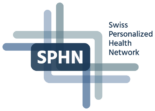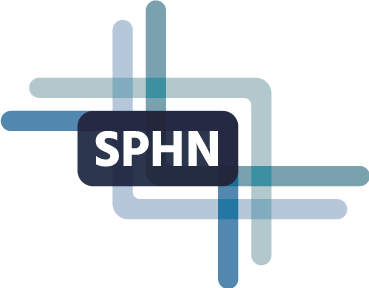26 March 2024
The integration of artificial intelligence (AI) into health research and care promises many advances for the future. At the technical level, the development of supporting algorithms however requires a large amount of meaningful, structured and interoperable data and, in practice, good regulation of AI applications. The interoperability efforts of SPHN provide a solid foundation for emerging AI developments in medical research and care.
AI has great potential for health research and for supporting clinical practice and decision making, but it comes with a major caveat: AI models - and the validity of their results - are only as good as the data provided to the algorithm for training. For AI developments to gain a foothold in Swiss medicine, two important prerequisites must therefore be met: First, the availability of a critical mass of data (big Data) and second, a solid database, ideally from the Swiss population, so that the AI-supported products are also tailored to the local population.
In a small country like Switzerland, large amounts of data can only be collected by combining data from different sources. To ensure that the data within this mass is also comparable (interoperable), data collection and processing must be coordinated in a targeted manner. This includes the implementation of clearly defined standards so that data is recorded in a standardised format and the provision of sufficient contextual information (metadata) to describe the data and make it interpretable by humans and machines. Both are essential in order to be able to assess the quality of the data for a specific purpose.
The SPHN Semantic Interoperability Framework lays the foundations
As part of the semantic interoperability strategy, semantic experts and healthcare and research professionals have developed clear definitions for more than 150 clinical variables. They were used to develop the SPHN concepts, in accordance with internationally recognised data standards such as SNOMED-CT or LOINC. The use of open standards from the World Wide Web Consortium (W3C) in SPHN makes it possible to link this data with other data (outside of clinical medicine) such as environmental or biological data.
Thanks to the powerful schema language, all eventualities can be mapped, and the standards and ontologies used enable AI algorithms to learn domain-specific generalisations. The framework created by SPHN enables the efficient provision of usable routine clinical data for the development of AI-based medical devices that can learn and benefit from the well-defined relationships between the data elements.
We are only at the beginning of the developments
The technical and data-related requirements are only one important aspect of AI. Equally important and no less complex is the question of regulating AI applications in practice. This is all the more crucial as the boundaries between research and treatment blur. The newly created "SPHN Data Governance Working Group" is thus addressing the requirements and practices that are necessary for the use of health data to develop AI-based algorithms and decision support tools for patient treatment. The importance of AI applications in personalized medical research and treatment is certain to increase. The efforts of SPHN are laying the foundations for Switzerland to continue to be involved in the future.
Collaboration across borders will be the way forward
Switzerland is participating internationally in the ARGOS project, which has been running since mid-2021. The University Hospitals of Basel and Zurich and sciCORE, one of the three BioMedIT nodes, form the Swiss node of an international "Personal Health Train". As part of this project, an algorithm modelled on the biological model of the human brain (deep learning) is being trained at more than 20 locations worldwide to automatically segment CT images of lung cancer patients.

